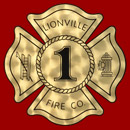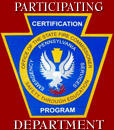|
Fire Prevention 2025:

From Phones to Power Tools: Lionville Fire Company Urges Residents to Know the Risks of Lithium-Ion Batteries this Fire Prevention Week
The theme for Fire Prevention Week™, October 5–11, 2025, is “Charge into Fire Safety™: Lithium-Ion Batteries in Your Home.”
The Lionville Fire Company is teaming up with the National Fire Protection Association® (NFPA®) — the official sponsor of Fire Prevention Week™ (FPW™) for more than 100 years — to promote this year’s FPW campaign, “Charge into Fire Safety™: Lithium-Ion Batteries in Your Home.” It highlights how important it is to buy, charge, and recycle lithium-ion batteries safely.
Most of the electronics we use in our homes every day — smartphones, tablets, power and lawn tools, laptops, e-cigarettes, headphones, and toys, to name just a few — are powered by lithium-ion batteries. In fact, most everything that’s rechargeable uses this type of battery.
If not used correctly or if damaged, lithium-ion batteries can overheat, start a fire, or even explode. To reduce these risks, look around your home — it’s important to know which devices are powered by them. “Lithium-ion batteries are powerful, convenient, and they’re just about everywhere,” said (your name, title). This year’s Fire Prevention Week campaign helps people understand the importance of using these batteries correctly to prevent fires in the home and to follow the Buy, Charge, and Recycle Safely approach.”

Buy only listed products.
- When buying a product that uses a lithium-ion battery, take time to research it. Look for a stamp from a nationally recognized testing lab on the packaging and product, which means that it meets important safety standards.
- Many products sold online and in stores may not meet safety standards and could increase the risk of fire.
Charge devices safely.
- Always use the cables that came with the product to charge it. Follow the instructions from the manufacturer.
- If you need a new charger, buy one from the manufacturer or one that the manufacturer has approved.
- Charge your device on a hard surface. Don’t charge it under a pillow, on a bed, or on a couch. This could cause a fire.
- Don’t overcharge your device. Unplug it or remove the battery when it’s fully charged.
Recycle batteries responsibly.
- Don’t throw lithium-ion batteries in the trash or regular recycling bins because they could catch fire.
- Recycling your device or battery at a safe battery recycling location is the best way to dispose of them. Visit call2recycle.org to find a recycling spot near you.
The Lionville Fire Company encourages all residents to be aware of their devices, follow the Buy, Charge, and Recycle Safely approach, and support this year’s FPW theme, “Charge into Fire Safety™.” For more information about Fire Prevention Week and lithium-ion battery safety, visit fpw.org.
Additional Fire Prevention Resouces:
Lithium Ion Battery Safety
Electric Vehicle & Charging Safety
Learn the Sounds of Fire Safety
Home Escape Planning Safety Tips
Kid/Adult Coloring Pages
|



